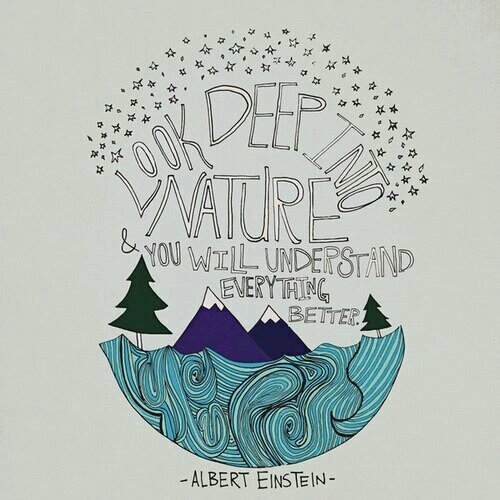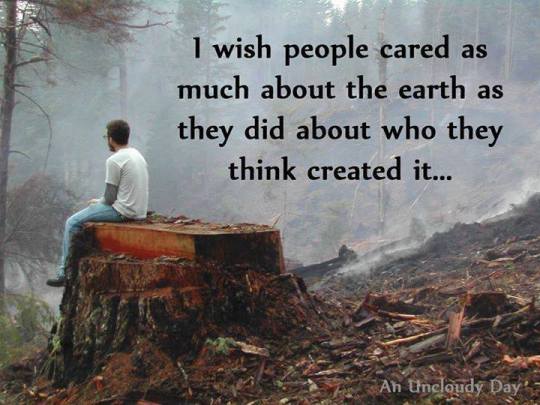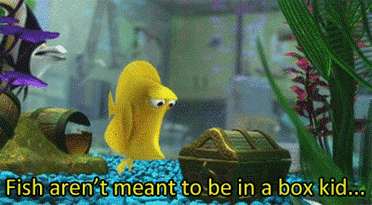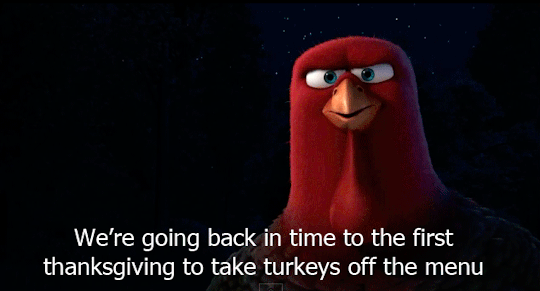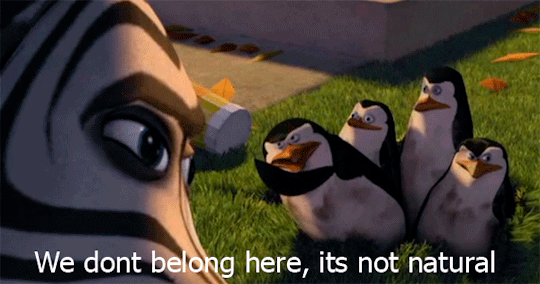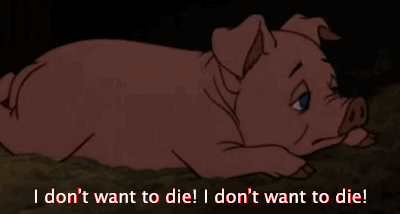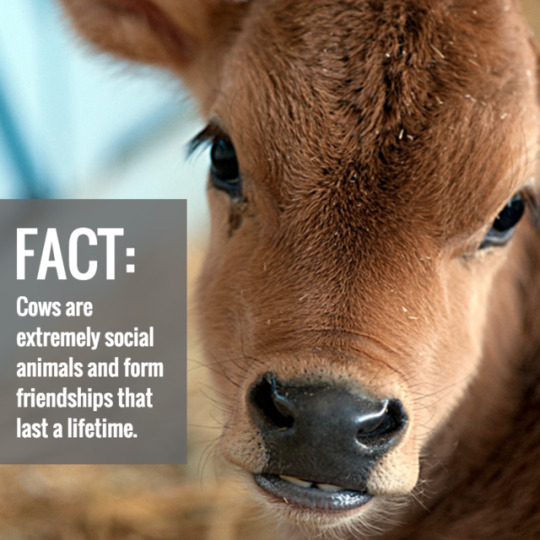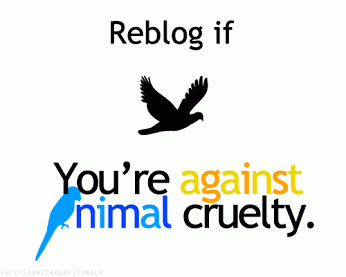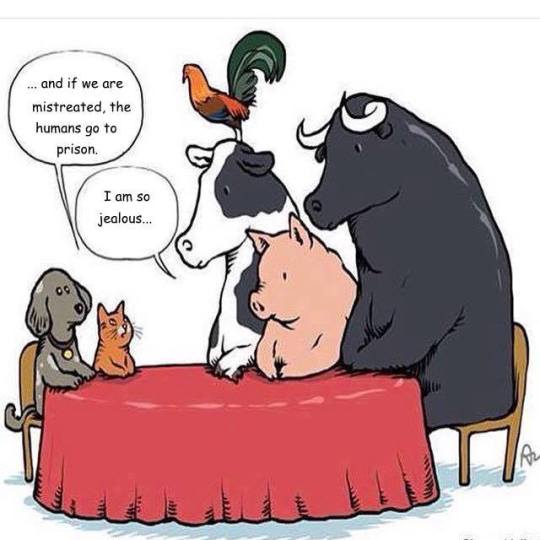Text
Final Thoughts
My journey as a student studying Environmental Philosophy this semester caught me by surprise. While I have always had a deep respect and concern for our environment, as well as an undying passion for studying philosophy, I never imagined how much the combination of both fields would impact the way I see the world and live each day in it. The lessons I’ve learned each week about environmental ethics set off a spark of curiosity within me that has continued to grow into a fiery passion that cannot be quenched. Now more than ever, questions burn inside me about how I can help this hurting world, save our endangered species, and awaken others to the dangers we have thrust upon the earth. I optimistic that we can change and grow. It is this reason that I have chosen to continue my new journey as an environmental studies minor while I pursue my philosophy degree.
I have never been a deeply religious individual, but I have always been very spiritual. I do believe in my heart of hearts that animals and plants do have their purpose, just as I have mine. It is because of this that I agree with the teachings of Thomas Berry as he presents his Ecotheology. My position as an environmental stakeholder and citizen is very clear. As one who believes in the lessons of deep ecology and biocentrism, I am a small yet powerful part of a much larger living system. It is my duty to help preserve and improve the conditions of all other living organisms on the Earth. This duty is not mine due to any claim for stewardship or superiority, but instead due to my awakened sense of belonging to something beyond me, where all other living beings are equal.
While I know that I have much more to learn, I am grateful for how much I have already grown in only a few short months. I do hope that I may continue to make small changes in the community around me as I have been, and that by setting an example, I will inspire others to follow my lead. It only takes one spark to set a fire after all.
2 notes
·
View notes
Text
Ecotheology
Word Count: 1150
Priest, Eco-theologian, and Earth scholar Thomas Berry is famous for his findings and beliefs on the relation between history and the functioning of our evolving world and Universe. His findings on what he calls the Ecozoic Era and Earth’s role as a sacred community are explained by Berry his writings “The Ecozoic Era” and “Evening Thoughts”.
Berry states that we are now in what one would describe as the terminal phase of the Cenozoic Era of Earth’s history. It is here where we are seeing humanity’s destruction of the sixtyfive million years of biological history that has existed before us, according to Berry. He states that humans now face a challenge never before seen in our species, one that goes beyond our daily lives or even our own species, but extends to the very state of our planet. The only two other moments in history that reflect what is currently going on are, “the end of the Paleozoic Era 220 million years ago, when some 90 percent of all species living at that time were extinguished, and the terminal phase of the Mesozoic Era sixty-five million years ago, where there was also very extensive extinction” (Berry, The Ecozoic Era, p 192). Unlike those two past eras though, Berry points out the harsh fact that this time, humans are the sole source for destroying our planet’s age old system of balance by interfering with various chemicals and pollutants, which in turn are destroying all inhabitants of the world on the macrophase level.
Macrophase biology, as described by Berry, focuses on five basic spheres: land, water, air, life and how they interact. He says that one of the reason most scientists give barely any attention to this biology is that we are so focused on other endeavors on the smaller scale such as human medicine to even see the much larger problems we are currently facing. This leads Berry to suggest that we have already left the Cenozoic Era of Earth’s history since we are in the termination phase, where countless life forms are going extinct, and a new Era is needed where humans and the Earth are working in conjunction with one another to create new life in a beneficial manner. He names this Era the Ecozoic Era, and states that in order for it to work, humans will have to adopt Deep Ecological principles of recognizing all living things as being members of the same living space, and not mere tools for our amusement and enjoyment. We must also recognize that since the Earth acts as a functioning organism on its own, we cannot expect it to work with missing or broken parts. In turn, we must preserve our planet to a level that it remains sustainable. The Ecozoic Era also requires that we recognize the Earth as a ‘one-time endowment’ that is the primary that we derive from, just as other animals do to make up our Earth community.
I find that I agree with everything Berry brings up in his writings due to my stance as a Deep Ecologist / Biocentrist. While I can recognize the arguments that those who would oppose such beliefs would bring up, such as the level of human advancement will enable us to solve problems we have caused, I maintain firm in my belief that in order for us to truly begin doing some good, we need to immediately halt the environmentally problematic practices many institutions, governments and companies now engage in. What Berry does that i truly admire and agree with is bridging the current state of the planet with historical periods of the past, something we tend to forget to do when studying Environmental Issues due to the future threat many practices pose. By demonstrating our planet’s process of maintaining itself while pointing out differences between other terminal eras and ours, we can better back up the belief that what humans are currently doing to our planet is more destructive and dangerous than anything ever before experienced by the Earth. I agree with his five conditions for what the Ecozoic Era requires to function properly, especially the need for us to regard other species as members of the same organism or community and see earth as our primary. I truly believe that one of the primary agents that prevents humans from being able to properly address the damage we are causing is how we see ourselves in relation to the planet and other living things. The Earth has existed millions of years before the dawn of man, and we need to ensure it doesn't die with us and our frivolous choices. In shying away from our current anthropocentric values, we may accomplish what is needed to enable the survival of the Earth, and in turn our species and countless others.
Berry argues that the world is not a like a machine or device that can be controlled, but instead something that itself survives, and needs time to heal itself in order to recover from the overextending damage caused by human technological interference of natural order. Our exponential growth forces ecosystems to be disrupted and animal populations to be displaced to make room for human infrastructure and expansion. Already we can see that Berry is correct in drawing connections between human destruction of the environment and limiting diversity of the planet due to mass species extinction. While we may survive, if we do not change our practices soon and adopt a more holistic understanding of our planet, the Earth will be far more barren than we can possibly imagine. Berry agrees with the sentiments of older philosophies such as Greek beliefs that all living things possess some semblance of a soul or purpose. His combination of religion with environmental analysis provides the perfect example of how Ecotheology works. Unlike some older environmental philosophies and religions that call for respect of animals due to mandates by a God, Berry’s Ecotheology combines science and religious spirituality to provide us with a more appealing and comprehensive lens to view our planet and all of its inhabitants.
I believe that Berry’s Ecotheology is the best spiritual perspective to view our planet through. While I am not someone who is deeply religious, I feel as though the points that are made by Berry are valid and convincing. It almost seems as though the philosopher is able to bring us back full circle to a deeply spiritual understanding of our planet that includes our broader understanding of science and actual consequence of human action. My question on this topic is, is Berry’s proposal broad enough to be adoptable by people of all religions due to its spiritual, religious roots and inclusive language? Also, can we truly reverse the damage already inflicted on our planet if we abruptly halt our current destructive practices, or have we already gone too far for the Earth to heal itself from human technological corruption?
0 notes
Link
948 notes
·
View notes
Quote
There is an inviolable connection between the way we treat the Earth, the way we treat people, and the way we worship God.
Patriarch Bartholomew’s message to the gathered leaders at the Religions for the Earth conference
312 notes
·
View notes
Text
Biocentrism & Ecofeminism
Word Count: 1122
In the ever expanding subject of environmental ethics, we see many schools of thought growing on how to see the world around us. Two fascinating subjects within the field are Ecofeminism and Biocentrism. Biocentrism is by definition, the view or belief that the rights and needs of humans are not more important than those of other living things, something that is incredibly reminiscent of my favorite philosophy of deep ecology. Ecofeminism is defined as a philosophical and political movement that combines ecological concerns with feminist ones, regarding both as resulting from male domination of society. To further examine both points, we will explore the works or Paul Taylor and Karen Warren.
Environmental ethics philosopher and late professor at Brooklyn College, Paul W. Taylor, contributed to the very interesting school of thought of biocentric egalitarianism, with many of his beliefs possible to find in his 1986 book “Respect for Nature”. Taylor explains his position in the discussion of animal and plant rights in his work, “Competing Claims and Priority Principles” which calls for “an inner change in our moral beliefs and commitments” to consider the lives of plants and other animals as being something of significance in a way that it currently is not. Taylor argues that humans are part of Earth’s evolutionary community, with all members of unique niches pursuing their own different ends being interdependent and related to one another in our vast ecosystem, with independent goals of groups of species being formed by how they interact with other groups. Such a sentiment echoes the beliefs found in deep ecology, with Taylor going a step further to point out that humans have only existed for a short amount of time; and that when we end, the other members of our ecological community will continue to move forward.
It should come as no surprise that I one hundred percent agree with the findings of Taylor, especially his point that no species is entitled to its teleological end more than another. Humans are after all narcissistic creatures who chose to see the world through an anthropocentric lens despite our empathetic capacity to understand that we are a part of something much greater. Taylor proposes that we must change our entire societal infrastructure to include not only all animals, but all plants as well. He does not mean to argue that humans are second class citizens within our planet to plants or animals, but instead that we must seek to contribute to their advancement just as much as we seek to advance ourselves. The New Yorker’s 2013 article, “The Intelligent Plant” echoes similar sentiments as those of Taylor, specifically that plants do indeed have a certain sense of awareness of their surroundings. While not the same as humans, the article points out that plants do have their own methods of being able to respond to the environment around them as it changes, with some even having neurotransmitters such as serotonin, dopamine, and glutamate. While the role of the neurotransmitters is still being explored, we cannot ignore their existence or merely write it off as chance coincidence. While we cannot say that plants can necessarily think, their systemic method for survival is something to ponder and respect. Just as humans have our own desired teleological ends, so do plants. Both much be considered in order for the quality of our Earth to remain and increase. As stated in Florianne Koechlin’s 2009 article, “Plant Signaling & Behavior”, “plants and animals are very young in terms of the earth's history, being some 400 to 500 million years old”, thus we all are new members of the same new community, and must work with each other to flourish.
Former Professor and Chair of Philosophy at Macalester College, Karen J. Warren is a self described “street philosopher”; meaning she finds philosophy to be a subject that lives out in every life every day. Warren has written over 40 articles in the fields of critical thinking, environmental ethics and more specifically, ecofeminism. Her position of ecofeminism fist addresses that there exists a very distinct difference between women and men, something which may seem to be a bit controversial considering the new arguments today that call the behaviors of different sexes more learned perfomativity within gender roles. However, she does make good points on the matter and expands these differences to then encompass how humanity itself is very different from nature. Warren argues that how we interact with nature is directly a result of the patriarchal “hierarchical logic of domination.” She goes on to point how just how women are oppressed by the patriarchy, so are animals and the environment. She calls of an end to policies that operate in “isms” and instead to pursue social justice for the rights of all living things. Her points of patriarchal affinity towards domination and exploitation of other living things is valid, and thus her proposed solutions do indeed make a great deal of sense.
I find myself agreeing with the points made in ecofeminism greatly. Women are after all compared to animals. Terms such as “bitch”, “pussy” and “cunt” are used to describe women and their bodies, or thrown at men to make them seem weaker in the same way that comparing men to women is considered a form of insulting in today’s vernacular. I can’t help but acknowledge that after exploring the topic, I feel as though men do aim to dominate and oppress all things out of a need for control and recognition of power. As troubling as it may be, the recognition of it marks our first step towards amending such an issue. Ecofeminism by nature encompass a great deal of other topics within itself. While some may consider this to be a hinderance when discussing various topics, I would argue that it is actually helpful considering all things in this world truly are related. In oder for us to properly understand the motives and reasons behind our actions, we must view them through every possible perspective to provide for the clearest possible picture.
After this week’s readings, I find myself at a confusing point in my journey as an environmental philosopher. While this entire time I’ve perceived myself to be a deep ecologist, I now see myself as subscribing to the beliefs of biocentrism. My question then is, are deep ecology and biocentrism both two sides to the same coin? Both argue for the preservation and advancement of all living things in order to allow for our interconnected planet to function as it was intended. Both also argue that all beings are equal members of the same larger group. Does the focus of each species’ “end” really separate the two? Or are they merely rephrasing the same sentiment?
0 notes
Text
Ecofeministic Considerations
Consider: historically, white male society has dominated over women and the environment.
Consider: environmental degradation and female health degradation go hand in hand.
Consider: patriarchally-driven advertising and media seeks to undermine a woman’s self-worth, usurp her feminine power, and ultimately influence her buying-habits. Women are the primary consumers in North American households. Products are advertised as enriching health or donating to cancer research, but cause decline in health and contain cancer-causing ingredients. Other products are labelled “green”, typically only one step left from a flat-out lie.
Consider: the major forms of cancer that American and Canadian women suffer from are cancers of the reproductive organs (breast, endometrial, cervical, ovarian). Women’s reproductive organs are believed to serve a direct connection to the forces of nature and are symbolic of nature’s regenerative powers. As nature is pushed to her limits, women are losing the body parts that make them uniquely feminine.
Consider: modern medicine is conducted in a warfare style in which cancer or disease is the enemy that we must obliterate via aggressive medical techniques. Surgical removal or bombarding with dangerous chemicals are the solutions. The same chemicals used in warfare are used in chemotherapy. The same lingo is used in discussing cancer “fighting” as in a legitimate military conflict. There are as many rescues as there are victims of modern medicine. This problem stems from the patriarchal view of duality and mutual exclusivity, separating the body from the disease. In actuality, disease is the result of an imbalance between the soul, body, and environment. We need to treat people, not diseases.
Consider: modern medicine is primarily aimed at the domination and control over the body as a mechanistic machine.
Consider: animal sacrifice made in the name of science for the creation of drugs. Animal testing is not only mildly relevant to the effect said drugs have on humans, but the approved drugs, as mentioned, are not necessarily helping people in the end anyways. This is another example of domination of nature, in the form of animal life.
Consider: childbirth is the most natural and miraculous bodily process of a women’s life, in harmony with menstruation and lactation. Under fear-driven patriarchal medical practices, childbirth has been institutionalized and transformed into a standard medical “procedure” in which, by whatever means deemed “necessary” a baby is extracted from a woman’s body like a tumour. ¼ American births occur by c-section, a violent operation that is not commonly utilized outside of white, male-dominated societies.
Consider: patriarchal, mechanistic, dualistic ideologies embedded into the world of science, such that anything outside of a categorical or cause & effect relationship must not be viable experiences and/or ideas in the real world. The evidence-based observation of our natural world does not take into account the bias of the observer. The act of observing anything at all will change the result of the experiment, as has been documented.
Consider: the domination of nature in the form of industrialized agriculture. These practices disrespect animal life, bastardize natural genetic code, and coat organisms with chemicals that affect the life of the surrounding ecosystems as well as the life of the people consuming the food. Through this effective destruction of the ecosystem (through a much more complex positive feedback loop), it becomes harder to grow crop and therefore increasingly “necessary” to utilize industrial agriculture products and genetic modification to supply food to the world.
Consider: the positive feedback loop of medical care, beginning with an illness, that is medicated, that results in a side effect, which is medicated, and on and on until you die.
Consider: that modern medicine was inspired by the healing properties of plants, and yet holistic medical practices are considered to be “alternative” to modern medicine, which has only been around for a few centuries.
Consider: with the destruction of the environment, all of the cultural practices causing the environmental degradation cannot be sustained without it.
Consider: cultures that prize male sons, in a few generations will only have one female for every five males
Consider: the feminine kingdoms of creativity, sexuality, and self-expression are demonized by patriarchal religion. Sexuality in particular, for males but especially females, is manipulated into a shameful act, worthy of being labeled sin, for which a person can be sent to hell to burn for eternity.
Consider: Eve is birthed from Adam. Eve causes the downfall of all humanity, due to the ‘manipulative’ nature of women, and tendency for her to be impressed upon, for which she will be punished for the history of all man kind.
This is a scratch on the surface of a wealth of knowledge on the topic.
73 notes
·
View notes
Text
Scopes of Feminsim
As Defined by the book “Feminist Theories and Social Work: Approaches and Applications” by Christine Flynn Saulnier ©1996
Liberal Feminism- Argues that, based on gender, women are unfairly denied equal access to society’s resources.
Radical Feminism- argues that society is psychologically structured on male needs, that to maintain that order women’s needs are subjugated, and that the fabric of society must be fundamentally altered.
Lesbian Feminism- challenges the organization of society around both heterosexual and male dominance and the ongoing enforcement of that arrangement.
Cultural Feminism- holds that women are more peaceful, cooperative, and nurturing than men, probably because women reproduce and nurture species.
Ecofeminism- is the application of women’s culture to efforts toward peace and ecology.
Socialist Feminism- blames the economics of capitalism in combination with patriarchy for women’s subordinate position in society.
Womanism (African American Feminism) - defines sexism as one of multiple interlocking systems of oppression functioning simultaneously and interdependently, inextricable from each other theoretically or experientially.
Postmodern Feminism- argues that since woman is socially defined and inherently distorting term, which cannot be defended on empirical or theoretical grounds, we have no reason to think females have an inherent nature or role. Thus, social organization rooted i gender is based on an invented concept.
Global Feminism- seeks to explain the interconnectedness of disparate feminist struggles by examining how world-wide economic factors combine with national histories of colonialism, religion and culture to oppress women
796 notes
·
View notes
Text
Heirarchical Animal Rights
Word Count: 1113
One of the primary focuses in today’s conversation of environmental ethics is in the rights of nonhuman animals. We see in the media and various organisations, a struggle between those who wish to free animals held in captivity for human testing and industrial farming and those who regard them as acceptable means towards human satisfaction. Different philosophers attempt to address what exactly is happening in our world and propose possible solutions to these events.
Donald VanDeVeer’s two factor approach argues the use of a ‘two factor method’ to address ethical dilemmas involving human and nonhuman animals. This involves two major steps: the first being the recognition of the rights of nonhuman animal rights, and the second being the recognition that such rights have the capacity to be overridden to protect the rights of beings of a higher sentience. VanDeVeer brings up an interesting counterargument to the findings of last week’s lessons revolving around Regan and Singer’s position on moral egalitarianism. He agrees with Social Darwinism, the age-old belief of survival of the fittest, in “The Environmental Ethics and Policy Book: Philosophy, Ecology, Economics” by addressing how we are in competition with all other species to survive. It is due to this competition that the genes of dominant members of a species contribute to their advancement. He addresses how humans have corrupted this system of survival due to our actions being made now out of individual interests and not species or world interest. However, VanDeVeer believes that by ending our “ethical egoism” or glutinous, self-serving practices, we can return to a healthy world order where basic animal rights are not compromised because of frivolous human desires. While this is an interesting argument, I find that it becomes problematic in that humans acting out of instincts of survival still contribute to a larger problem in the world involving our overpopulation. That aside, Regan’s point that certain humans do not meet the same sentience level as others also puts a huge hole in the logic of the two facor approach; seeing as how it only works when considering a developed human. While VanDeVeer would respond that our innate desire to protect our allies, members of the same species, to explain this conundrum, I feel as though it still is not as strong as either Singer or Regan’s philosophies, which also feel more inclusive and less anthropocentric. I feel that a better examination of how to address other species and the planet can instead be found in the works of Callicott.
J. Baird Callicott’s notoriety within the field of environmental ethics can be traced to the American philosophy professor teaching the very first environmental ethics class in the world at the University of Wisconsin in 1971. He is believed to be the leading contemporary exponent of Aldo Leopold’s “A Sand Country Almanac” land ethic, and has even published his thoughts on the belief system in his book, “In Defense of the Land Ethic”. Callicott’s environmental ethic is a holistic and non-anthropocentric environmental ethic. He discusses his beliefs in “Animal Liberation: A Triangular Affair”. He describes animal liberation as an environmental ethic of its own through some considerations, calling against the enslavement of certain animals as we currently see within the westernized market system. Such examples include cows, chicken and pigs. Those who concur with this form of hyper egalitarianism will equate such practices to terms such as speciesism and human chauvinism. Where Callicott begins to separate his beliefs with those of Leopold is how we ethically regard non-animal organisms such as plants, saying that to completely equate them ethically to organisms with cognitive functions such as animals is somewhat absurd. The main point he makes is on topics that refer back to animals that are factory farmed and thus mistreated on a greater level than other organisms. The biotic right of a chestnut is thus unequal according to Callicott, to that of the oppressed hen.
I find myself agreeing with the point that Callicott makes regarding how speciesism should be prioritised on creatures that can be legitimately oppressed or have some form of rights taken away. This is due partially to my bias towards deep ecology in that we are all connected on some level to all other living things in this world. While I agree that plants have a right to existence for sake of other animal’s consumption and the diversity and quality of our planet, I cannot ethically equate how they are farmed or cultivated to how an animal can be farmed or cultivated. I also agree with Callicott’s response to ethical humanism with humane moralism. Not all humans can be considered morally equivalent in consideration of the very definitions and terms set by ethical humanism, which sees the rational human as the only being deserving of moral standing. Callicott’s point in that infants would be able to be regarded as mere animals strikes me, because one can easily equate the rational level of a human infant to that of animals such as pigs, who stand cognitively equal to dogs and certain parrots. Imagine we were to commit the heinous acts we enact on the thousands of livestock everyday to children. Objectively speaking, we are doing something very similar. In harming animals that are somewhat mentally equal to certain types of humans that can still feel pain and sorrow.
It should come as no surprise that in agreeing with the sentiments of Callicott, I disagree with the points made by Luc Ferry in “The New Ecological Order”, primarily with how he understands beliefs within deep ecology. While we cannot put animals on trial and hold them as being rationally equivalent to humans, this does not take away from the obvious value that each species on the earth possesses in its unique design, a role it plays in the world. To be pro-world is not to be anti-human after all.
I believe that Callicott’s philosophy is much stronger than VanDeVeer’s primarily because it compares the various degrees of sentience animals posess without immediately priotitising humans or excusing human actions due to Social Darwinism. It seems to me that the two-factor approach as expressed by VanDeVeer is just too simple to be used in more complicated matters of environmental ethics. Consider this: how can VanDeVeer’s two factor method be considered when dealing with ethical questions that involve animals of various cognitive functions in an ecosystem? Considering humans impact not merely one animal, but many at the same time, does his logic only work in small cases? If that is the case, it can still be a useful tool for certain considerations, but still does not hold my approval considering my own personal deep ecological beliefs.
0 notes
Text
Egalitarian Animal Rights
Word Count: 1119
We consider the rights of animals though many different lenses. Sometimes, we forget just how easy it is to consider animal rights in environmental ethics, regardless of your pre-existing beliefs. Peter Singer and Tom Regan both possess differentiating systems of belief when considering environmental ethics, yet come to similar conclusions about the mistreatment of animals and ignored rights that they do indeed have. While Singer comes to more radical conclusions where Regan is able to find easier rationality when considering the lives of animals, both make very good points and argue against certain practices that seem to strip animals of their very basic rights. In comparing the findings of both philosophers, we are able to bring up many important ideas about how humans see themselves and how they regard animals.
Australian moral philosopher and professor at Princeton University and the University of Melbourne, Peter Singer, specializes in secular utilitarian ethics focusing on environmental subjects. Voted in 2006 as one of Australia’s ten most influential public intellectuals by the Council of Australian Humanist Societies, the philosopher has contributed greatly to discussions in environmental ethics, and has been credited as one of the individuals to popularize the term “speciesism”. Singer’s Utilitarian animal rights ethics focuses on the pleasure and pain of not only humans, but animals as well. One of the primary motivators in his belief is the understanding that animals have enough sentience to experience external stimuli around them and communicate emotional responses through means such as physical expression. He argues that the moral separation of humans and nonhuman “animals” is arbitrary, considering human animals choose to isolate themselves as one unique group and all other animals, regardless of their distinctions and vast differences from each other, are muddled together in the other group. Singer’s moral philosophy relates greatly to the previous week’s film “Earthlings” due to his stance against factory farms, expanding to also argue against such practices hunting wild animals for sport.
I find Singer’s use of an inclusive Utilitarianism in environmental ethics to be both fascinating and exciting; considering before learning of it, I assumed that all those who supported Utilitarianism followed a strictly anthropocentric perspective of focusing on the desires and pleasure of humans. Truthfully, I do think that in many ways this stance works. While I admit that I would not chose to fully abstain from consumption of meat or use of animal products in certain goods, I do believe that his position hold merit, and that perhaps my reluctance to become fully vegetarian is a bit hypocritical and ethically wrong. However, I do believe that perhaps becoming completely vegetarian and abstaining from any killing of animals may also be a flawed idea to consider when considering that all carnivores and omnivores do kill for food when granted the opportunity. Such is a basic consequence of survival and advancement, yet we must consider the rights of animals as Singer points out, and kill them with respect just as a lion would kill its prey and not as we grow and harvest animals like crops in the manner we do now.
Taking a similar position with different source-thinking in the discussion of egalitarian animal rights is American philosopher and professor at North Carolina State University, Tom Regan. The environmental philosopher and author argues that non-human animals are like humans in that they are “subjects-of-a-life”. Regan utilizes Kantian, Deontological philosophy to describe the notion that all living beings experience some level of psychological self-awareness, and thus should not be used as a means to an end. One of Regan’s interesting points is that not all humans are on the same cognitive level. This being the case, one who deems animals as deserving of different treatment from humans would have to include mentally impaired humans, or lower functioning humans such as babies. Using the Kantian philosophy of finding moral appropriateness in doing what we ought someone else to do, we would not chose to treat certain humans as animals. If this is the case, we should not then treat animals the way we would not treat humans.
I find that Regan makes for an interesting argument, especially in his use of the the miniride principle, which states that when faced with overriding the rights of many innocent organisms compared the rights of few innocent organisms, we ought to override the rights of the few innocent beings, since both will be harmed either way. However, this seems like flawed point to make when considering how many animals are killed to allow for one human to live versus how many fewer humans could die from animal consumption. We are after all only prey to a select group of species. Wouldn’t we be more morally wrong to kill an animal for our survival, considering humans have so many other means of attaining food. This one point feels a bit like a stretch to me since it uses an extreme example to pardon a large majority. Regan works his way around this by arguing that humans have greater opportunities in the world, which pardons us from killing specifically for our survival, which pardons his argument from being considered preferential to human animals since it is rooted in the criterion of opportunity.
When considering both perspectives, I find myself veering more towards the side of Singer. My reasoning for that his more radical opinion of eating animals still feels more fair to me compared to Regan’s excuse of it due to the criterion of opportunity. I don’t disagree with Regan, I just prefer the more challenging and critical argument for animal’s rights. In a way, I see how both sides provide sufficient arguments to be considered valid depending on the discussion, and feel as though they both use different means to come to similar conclusions, that animals are to be thought of as much more equal than we currently see them.
I do question both philosophies for different reasons though. For Singer’s philosophy, when considering pleasure and pain, wouldn’t it be accurate to argue that humans cause the highest level of pain and least amount of pleasure for all other organisms in the world, meaning that our own extinction would be the most morally acceptable action to take? For Regan, is it truly fair to use the criterion of opportunity to excuse humans killing animals when considering how few humans actually accomplish things that benefit species besides their own? Either way, the discussions that both philosophers open up does feel much more fair when considering other species in comparison to the ideas rooted in anthropocentrism, where humans always have the unfair advantage of regarding animals as tools by pointing out their differences, rather than focusing on the vast similarities we share with them.
0 notes

